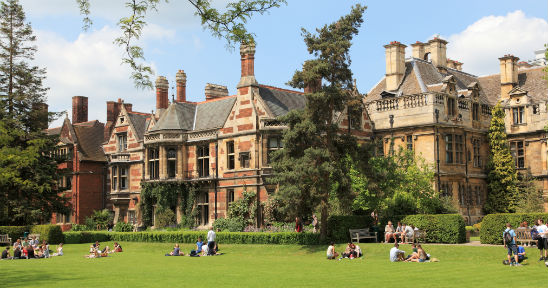
The Colleges are autonomous, self-governing bodies with their own statutes and governing bodies. There are 31 Colleges in Cambridge founded between 1284 (Peterhouse) and 1979 (Robinson).
The University's formal relationship with the Colleges is enshrined in Statute G of the University's Statutes and Ordinances and the Colleges are directly represented on a number of University Committees, including the University Council (four Heads of Colleges), the Finance Committee, the Planning and Resources Committee and the Joint Committee on Development. Subject to qualifying criteria, Fellows of the Colleges and other College staff are included on the Roll of the Regent House and so are included directly in the governance of the University at its highest levels.
The Colleges are responsible for admitting undergraduate students to the University. Undergraduates and graduates spend much of their resident time in Cambridge at their College – studying, dining, socialising, and receiving academic and pastoral support. Undergraduate students also take part in weekly or fortnightly supervisions in Colleges. These are small-group teaching sessions, usually organised by a student’s Director of Studies, which are provided in addition to University lectures.
Colleges are also interdisciplinary academic communities, as most academics engaged in research and teaching in the University are also Fellows of Colleges. Each College has a Head of House (often referred to as Master, although President and Principal are common variations), a body of Fellows (of which there are usually various classes) and other administrative and assistant staff – everything from librarians to catering managers, and gardeners to fundraisers. Central to their day-to-day functioning are a number of core officers – the Bursar, Senior Tutor and the Directors of Studies, most of whom will also be Fellows.
Intercollegiate matters are conducted via a number of committees, among them the Colleges’ Committee, the Bursars’ Committee and the Senior Tutors’ Committee. Members of these committees will also be represented on University committees. Senior Tutors, for example, serve on a wide range of University bodies covering subjects as diverse as admissions, IT, and equality and diversity.